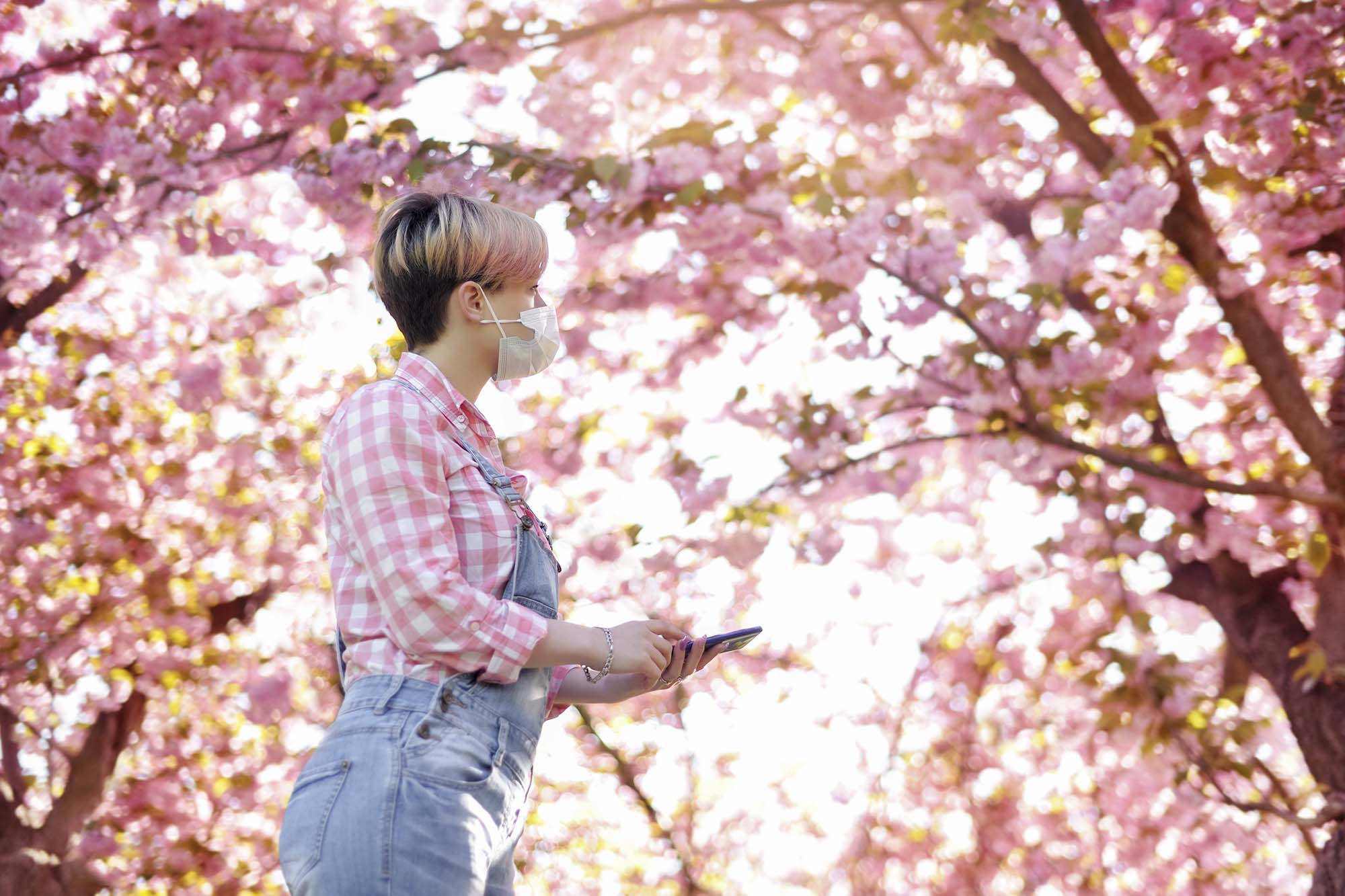The sneezing. The coughing. The runny nose. The watery eyes. The wheezing.
Anybody who’s ever suffered from allergies can attest to the debilitating feelings they often leave you with.
This spring, there have been reports across the country suggesting that allergy season has been worse than ever.
To learn more about what is happening, UVA Today caught up with UVA Health’s Dr. Timothy Kyin, a general allergist who treats a wide spectrum of patient conditions. Kyin (pronounced “Kin”) is an assistant professor in allergy and clinical immunology and is the division’s medical director of ambulatory and outreach. He is board-certified in allergy and immunology as well as internal medicine.
Q. Is allergy season particularly bad this season? What are you seeing from patients compared to past years?
A. It’s always a bad allergy season for someone. While there is the usual pattern in which various plants bloom, when there is volatility in the weather, that can cause some plants to bloom sooner or later. As such, if you happen to be one of the lucky ones whose allergic triggers all happen to bloom around the same time, then it probably will be a really bad allergy season for you.
This past season has probably been more problematic than in recent years because of the short winter and earlier warming, leading to a sooner start to the allergy season.
Q. What are a few of the factors you believe have made it worse?
A. On a larger scale, there is also climate change with increasing temperature and amount of CO2. These factors have been implicated in prolongation of allergy seasons across the world. There are various studies out there showing that plants are flowering earlier than prior and that the duration of pollen season is also lasting longer. This is not a good combination for allergy sufferers.

Dr. Timothy Kyin said a key in the fight against allergies is to reduce exposure to pollen. (Photo courtesy of UVA Health System)
Q. Are you seeing more children than usual with allergy problems, due to all the increased time outside due to the pandemic?
A. This is a mixed bag. Yes, if the child is already allergic, spending more time outdoors will result in more allergy symptoms. On the flip side, because of the COVID pandemic, some kids are wearing masks, even when outdoors. Masking has probably not only reduced the cold and flu rates this year, but probably has reduced allergy burden as well.
Q. Can you offer some specific tips for allergy sufferers?
A. The key in battling your allergy season is to reduce exposure. So short of staying indoors all season with the windows closed, what else can we do?
Over the past year with more routine use of a face mask, with or without goggles, people have realized that these measures do have a positive impact in improving their allergy symptoms.
Other ways to reduce exposure:
- Wear a mask when you mow or are buried in yardwork.
- Drive with the windows up and the air conditioning on.
- Keep the windows in the house closed and use air conditioning.
On the flip side, once there is inevitable exposure, because we like to be outdoors to enjoy the weather, the key is to remove the pollen.
- Rinse off in the shower prior to bed, including the hair. If you think about it, we typically change our clothes and wash our face before we go to bed. So why are you going to bring a head full of pollen on to your pillow and rub your face in it all night long while you sleep?
- And let’s not forget about the inside of your body and sinus cavities. What is your body’s first instinct to an allergen or an irritant? It wants to get rid of it: You sneeze, your nose runs, you cough, your eyes water, etc. Those are all ways for your body to try and purge the bothersome exposure. By the same token, using sinus saline rinses helps expedite that process. Think of this as a shower for the inside of your sinuses. Once you flush out the allergen, your body stops reacting to it.
Media Contact
Article Information
June 1, 2021
/content/pollen-pollen-go-away-5-tips-help-you-combat-allergies

